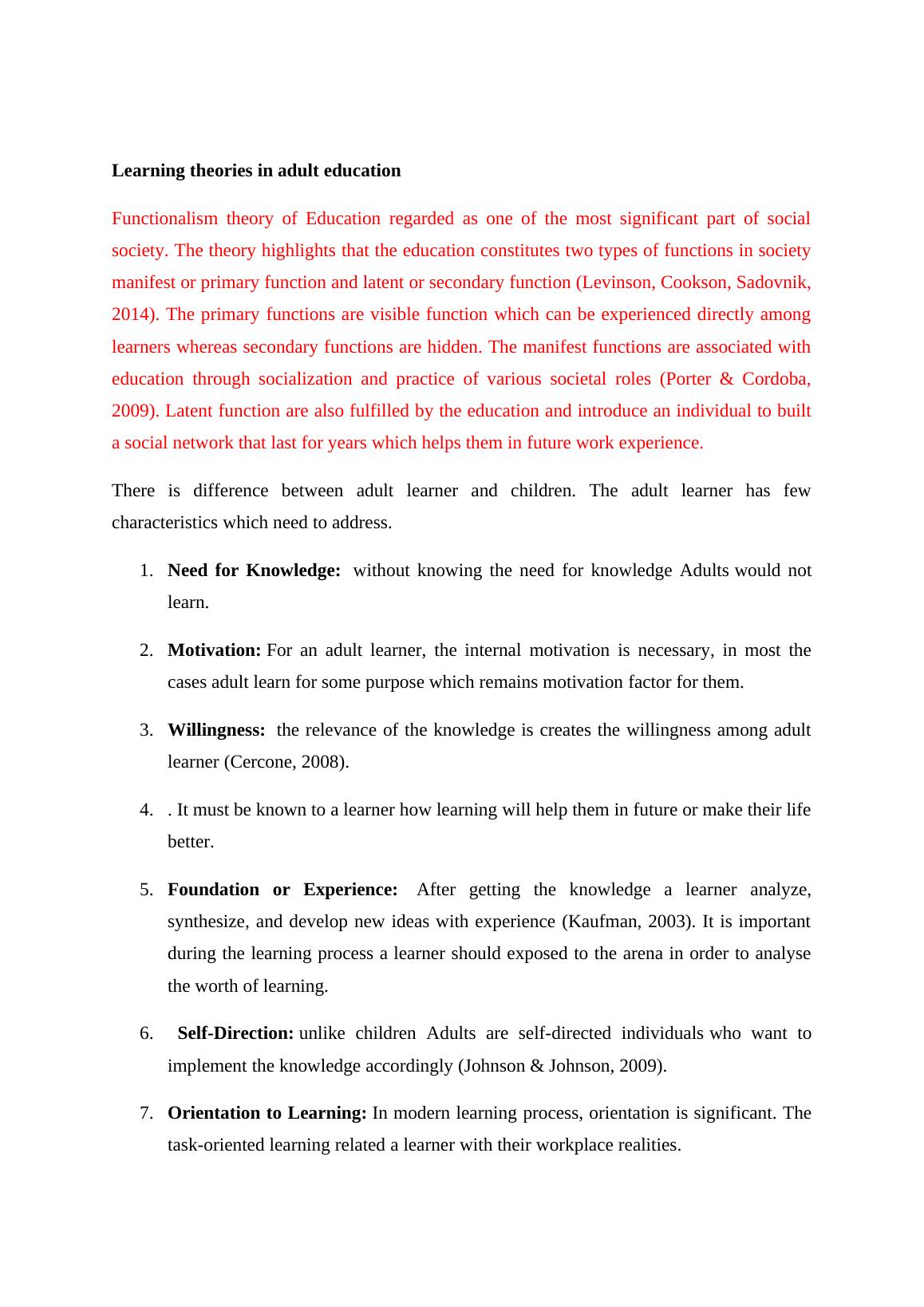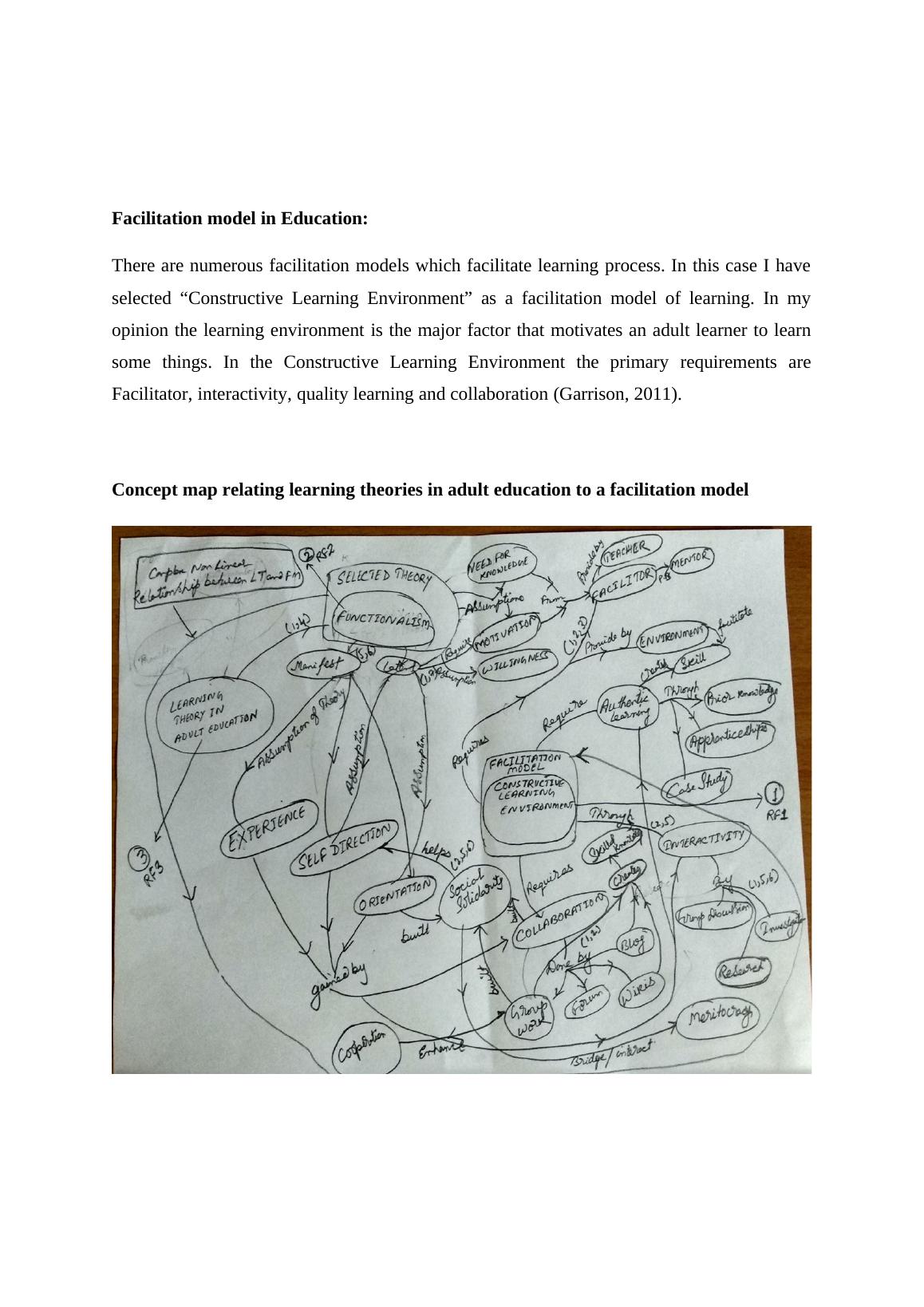Learning Theories in Adult Education and Facilitation Models
4 Pages980 Words182 Views
Added on 2023-06-05
About This Document
This article discusses the significance of learning theories and facilitation models in adult education. It highlights the characteristics of adult learners and the importance of a constructive learning environment. The article also includes a concept map that provides a clear view of the various factors that influence adult learning.
Learning Theories in Adult Education and Facilitation Models
Added on 2023-06-05
ShareRelated Documents
End of preview
Want to access all the pages? Upload your documents or become a member.
Facilitation and Education Skill for Practice Development Assignment
|6
|967
|20
Theories, principles and models for inspirational teaching and learning
|5
|928
|437
Theories, Principles and Models in Education and Training
|22
|7163
|160
Theories, Models, and Principles of Learning, Communication, Assessment, Curriculum Development, Reflection, and Evaluation
|15
|1481
|68
Job advertisement analysis Assignment
|6
|1110
|115


